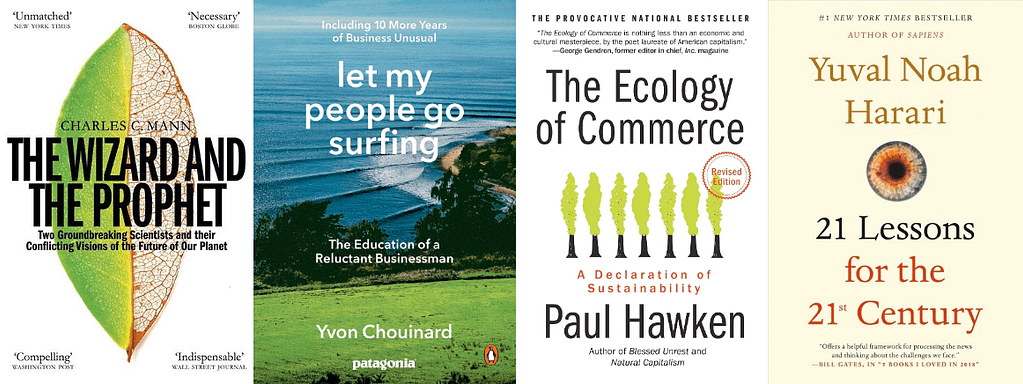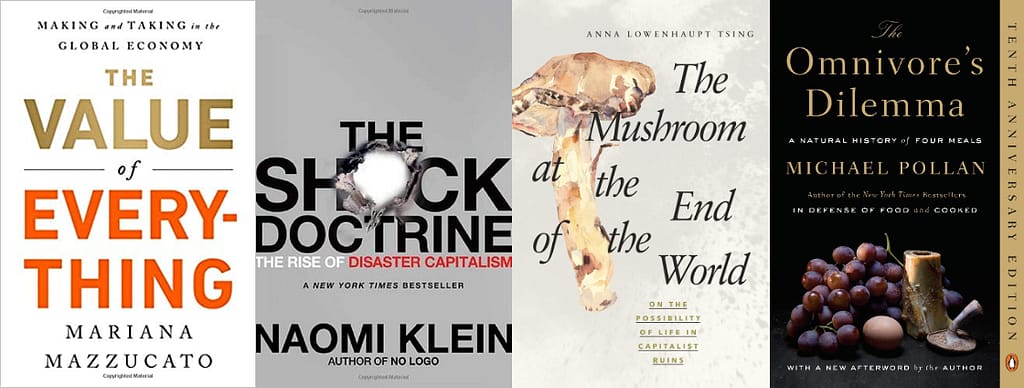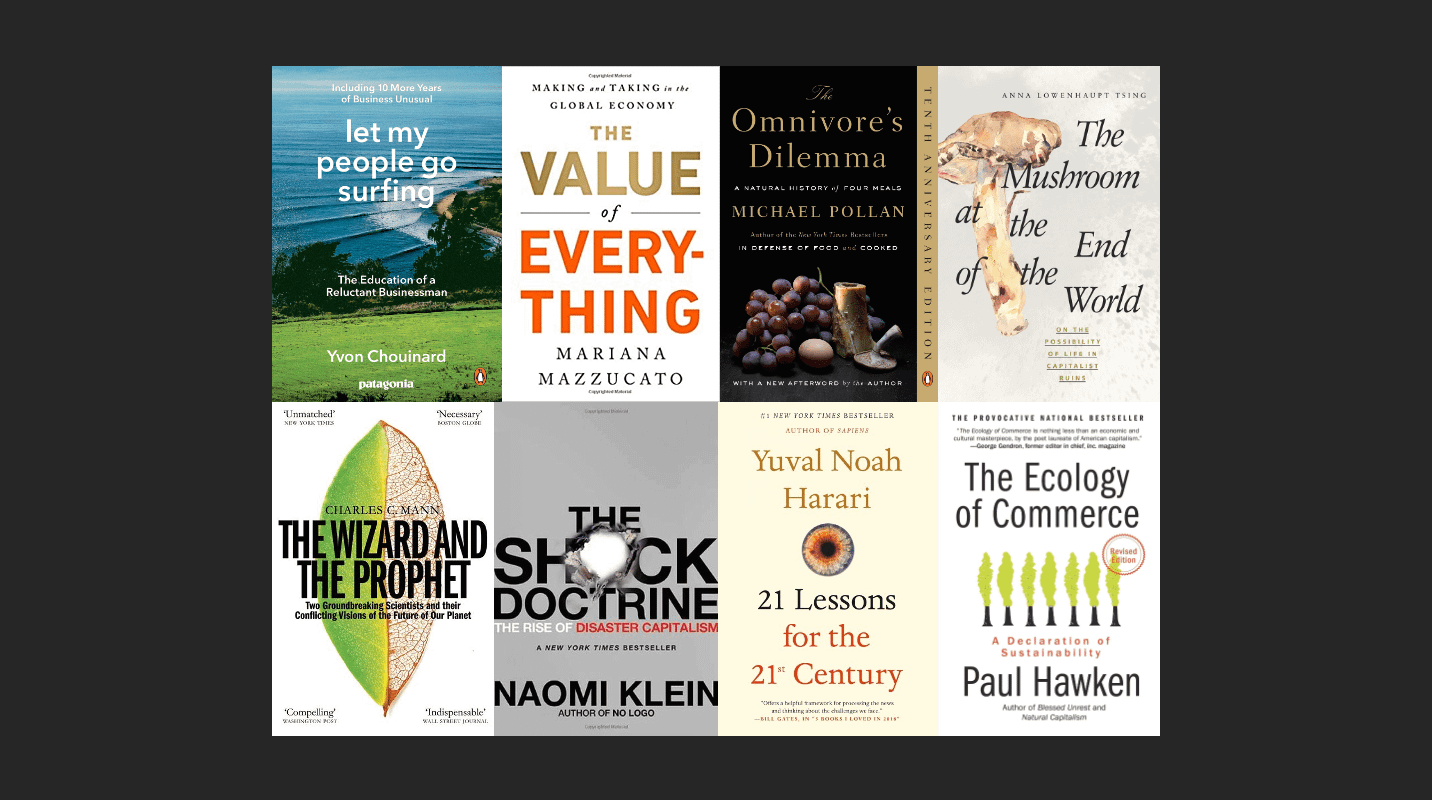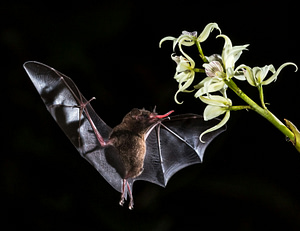Adapting to new routines and more time at home over the coming weeks, we’ve gathered a list of thought-provoking sustainability reads.
1. The Wizard and the Prophet – Charles C. Mann
Don’t let the fantastical title fool you. In The Wizard and the Prophet, accomplished science writer Charles C. Mann unpacks one of the most significant environmental debates of our time: is a safe future for humanity dependent on drastically reducing human consumption, or will technology and human ingenuity help us tackle whatever challenge comes our way? Mann explores this argument through the life’s work of William Vogt and Norman Borlaug – two pioneering scientists with a common mission to change the world for the better, but with very different ideas on how to get there.
2. Let My People Go Surfing – Yvonne Chouinard
Founder of one of the most socially and environmentally responsible organizations in the world, Yvonne Chouinard shares a memoir of how Patagonia came to be. This book was originally intended as a “philosophical manual” for Patagonia employees, but it wasn’t long before Chouinard’s boundary-pushing approach to “business unusual” made the company a well-renowned global case study. The best part? This book is not just about business – it’s about passion for adventure, the outdoors, and a meaningful life – a philosophy Chouinard has worked hard to foster across Patagonia worldwide.
3. The Ecology of Commerce – Paul Hawken
A “spear in the chest epiphany” is what Interface founder Ray C. Anderson experienced when he first read The Ecology of Commerce. Today, Interface is a world leading sustainable business. Hawken views business as humanity’s most powerful engine for change. In fact, he believes it’s our only hope: “Either we see business as a restorative undertaking, or we, businesspeople, will march the entire race to the undertaker.” The Ecology of Commerce begins with a confronting account (you’d be surprised what you thought you knew) of the damaging effects of modern business on our planet. It then goes on to challenge the perception that commercial success and sustainable environmental practices are mutually exclusive, laying out practical mechanisms for “green business” on both the macro and micro levels.
4. 21 Lessons for the 21st Century – Yuval Noah Harari
While Harari’s Sapiens reflects on the history of humanity, and Homo Deus on our future, his latest book is all about our present. A compilation of stories, many originally written for media publications, 21 Lessons for the 21st Century unpacks our greatest modern challenges. From Trump-era politics to data concentration, Harari provides clarity on what he deems “the most important questions facing humankind today”. His hope is that this book encourages more people to join the debate on current issues that matter greatly to the future of humankind.

5. The Value of Everything – Mariana Mazzucato
Here, Mazzucato explores how and why we place value on the things around us. She unpacks the idea that in today’s economy, activities that extract value are more highly rewarded than activities that create value. From topics like financial deregulation and the innovation economy, to the role of governments as value creators, this book gives clear and tangible examples of our tendency to ‘make and take’ in the global economy. Mazzucato provides thought-provoking ideas on why things like patent systems and equity shareholder incentives discourage the creation of new value, and instead promote continued extraction of value by an elite few.
6. The Shock Doctrine – Naomi Klein
In the face of the novel coronavirus crisis, The Shock Doctrine takes on renewed relevance. Klein’s controversial account on “the rise of disaster capitalism” discusses the role of crises in advancing neoliberalism, the dominant ideology of our time. Klein’s view is that times of crisis or disaster may be exploited to establish questionable policies, while citizens are physically and emotionally distracted and therefore unable to show meaningful resistance. Since its first publishing in 2007, Klein’s argument has been met with mixed reactions. One thing’s for sure – it’ll get you thinking.
7. The Mushroom at the End of the World – Anna Lowenhaupt Tsing
What can a rare mushroom teach us about our relationship with nature? American anthropologist Tsing delves into the value chain of the matsutake mushroom, which grows in human-disturbed forests in the Northern Hemisphere, and fetches high prices as a highly sought-after gourmet delicacy in Japan. Through this lens, she exposes a profound question: what manages to live in the ruins of extractive capitalism?
8. The Omnivore’s Dilemma – Michael Pollan
In recent years, the world has seen a necessary flurry of authors and thinkers commenting on the topic of sustainable diets and food systems. Pollan was one of the front-running intellectuals to contribute to this debate. His 2006 release of The Omnivore’s Dilemma embarks on an extensive exploration of food production in America – from industrial to organically produced food, to foraging food for ourselves. Fourteen years on, one of the best reasons to read this book is to take stock of some of the remarkable changes that have taken place in the food and farming space since the time of writing. Pollan “sees signs of hope” – do you?

Made your way through this list? More inspiration this way.






